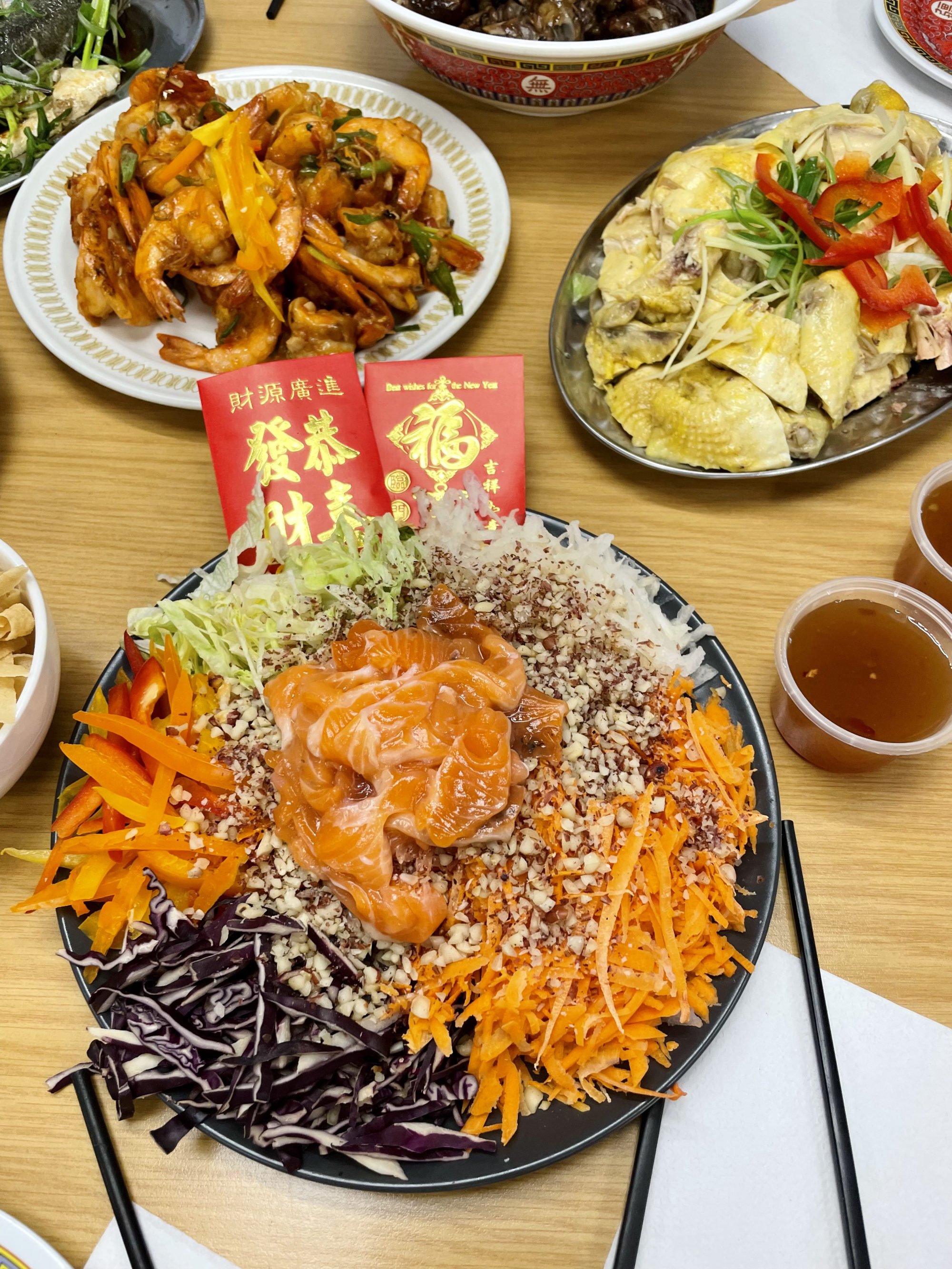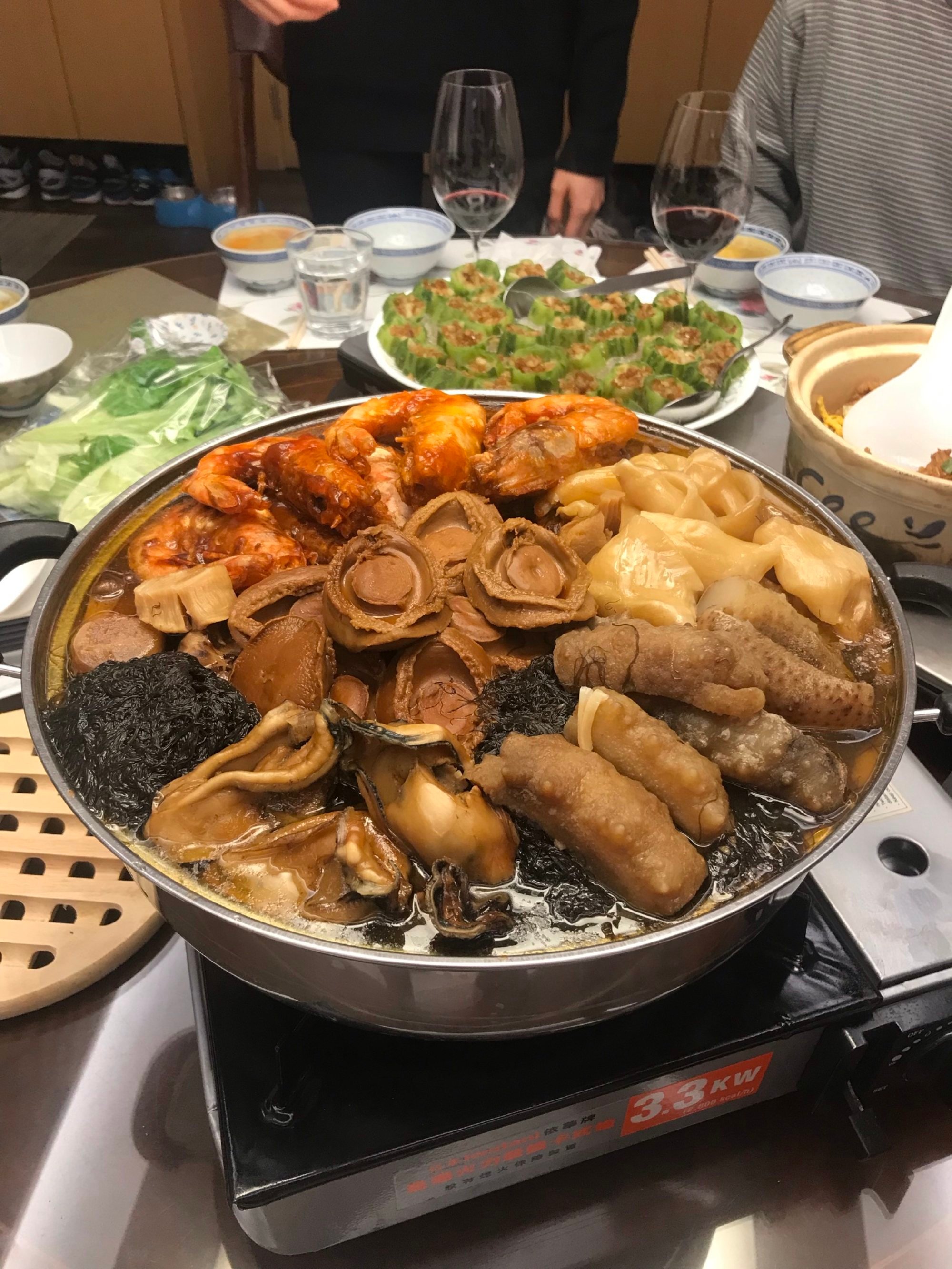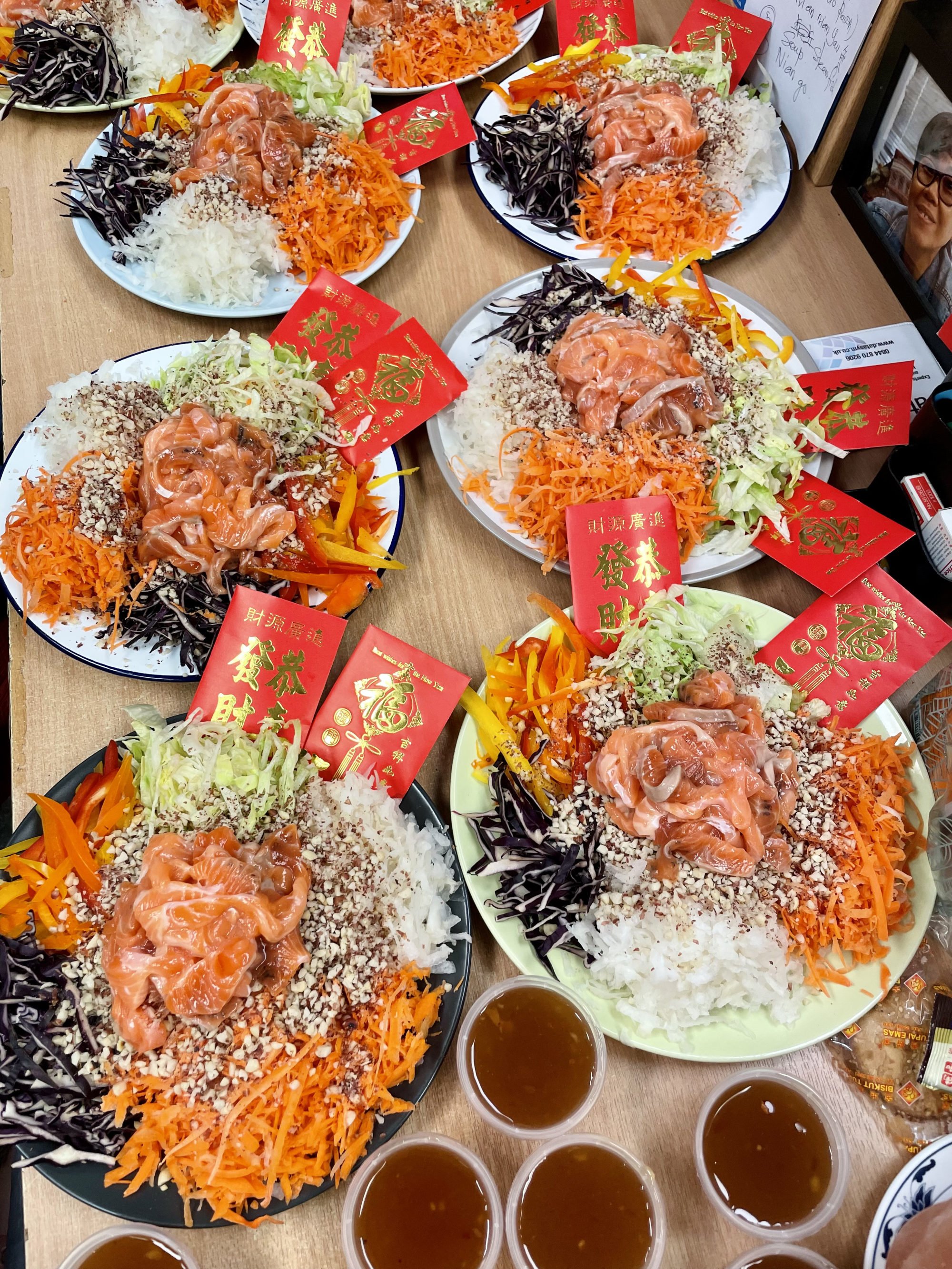The ‘quiet luxury’ trend in Chinese dining: how showy ingredients like bird’s nest are out with young epicures, who eat without breaking the bank
The salad might seem like a random compilation of ingredients, but each component represents a desire for the year ahead. You see, the Chinese are obsessed with eating to manifest wealth just like the British drink for … well, just like the British drink, full stop.
Our consumption habits have always skewed towards accumulation, and this shows up as much in our choice of material goods as it does on the plate – or off the plate, as it was in the case of the flying “gold” cracker.
If you ever forget what an ingredient represents, just blag it and say … prosperity? (When in doubt: it’s always wealth.)


I’m heartened to see a maturing attitude to the more is more aesthetic, especially as the Chinese nouveau riche have a notorious reputation for crossing the line between classy and crass. I wonder whether this development will be reflected in Chinese eating habits at all?
Our food culture is also not without vulgarity. Edible luxuriousness has long been measured variously: by its content, its quality and its price tag. Sometimes certain ingredients seem to be deemed valuable by virtue of exclusivity or size.
What’s the dining etiquette for different Asian cuisines? This expert knows
What’s the dining etiquette for different Asian cuisines? This expert knows
Would it be unfair to suggest that some people get a thrill out of the performative spending as much as the food itself?

There are also practical concerns about a black market of fake goods, such as the black moss so prized for its homonymous expression of a wish to get wealthy.
Demon Chef’s farm-to-table Cafe Bau and the Hong Kong farmers supplying it
Demon Chef’s farm-to-table Cafe Bau and the Hong Kong farmers supplying it
But when you look at our relationship with luxurious foods, loud luxury relates more to maintaining social relationships: whether entertaining clients or friends, offering luxury on a plate is intrinsically linked to the Chinese concept of saving face.
Come to think of it, eating wealth is not the same as eating for wealth. This is a colourful nuance I love about Chinese food culture. Luxury need not be literally ingested, if it can also be simulated through symbolism.

As a plant-based cook myself, I have in my pantry an arsenal of “poor man’s x”: vegan substitute ingredients, all of which offer value for money and just as much nutritional goodness.
On reflection, perhaps I was hasty to laugh at the overt theatricality of yusheng. Sure, it is loud – literally, in volume – but ostentatious it is not. The salad’s ingredients are affordable, accessible and easy to prepare.
Long may we eat in affectation of luxury and in pursuit of good fortune – without breaking the bank.
Jenny Lau is a London-based writer and the creator of Celestial Peach, a platform for stories about food in the Chinese diaspora and the people and cultures behind it.













